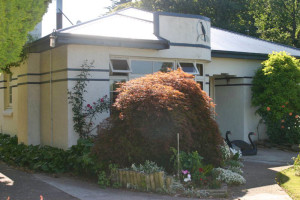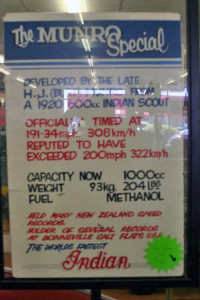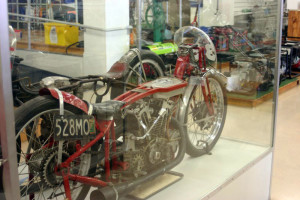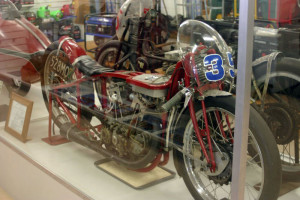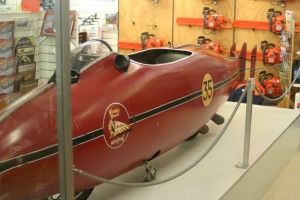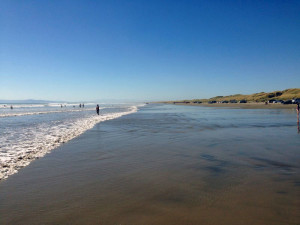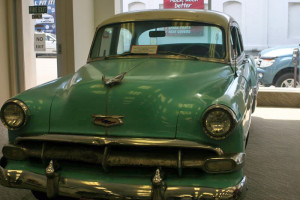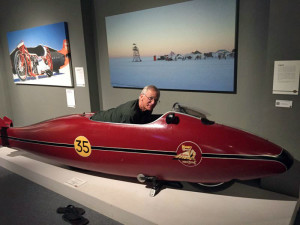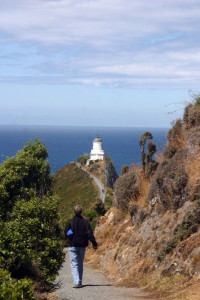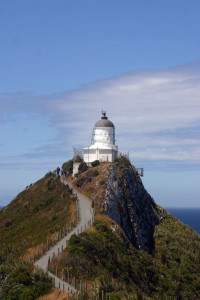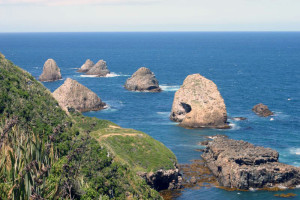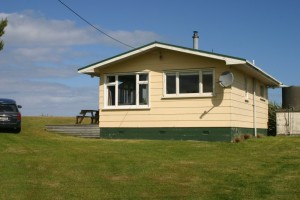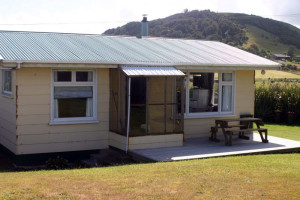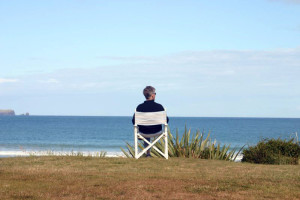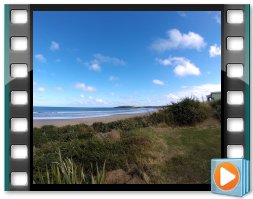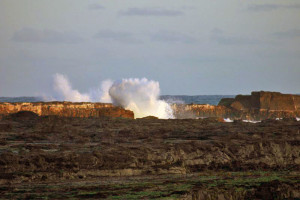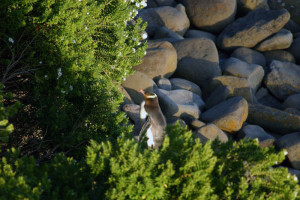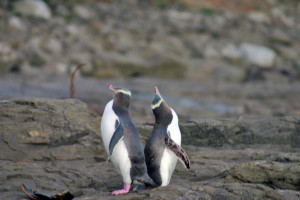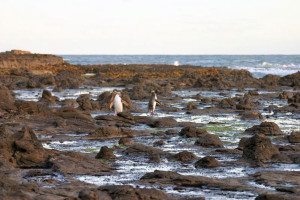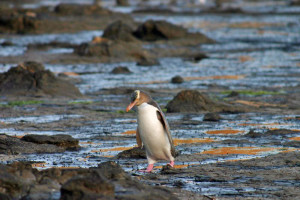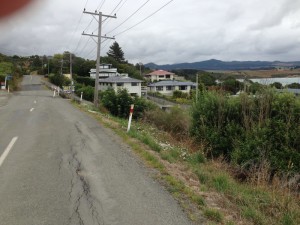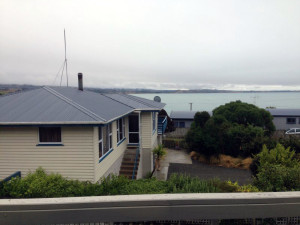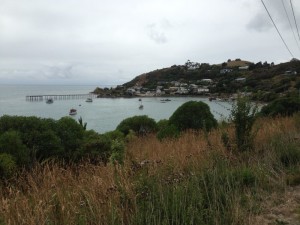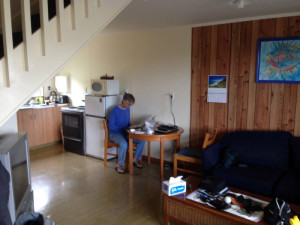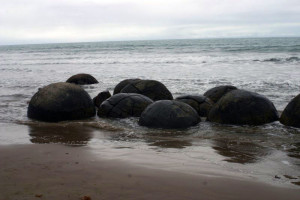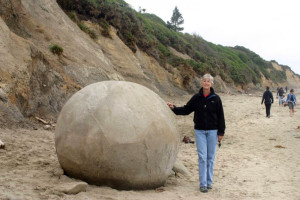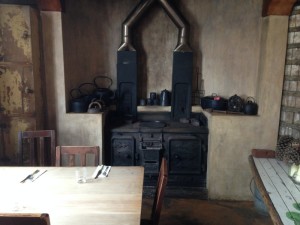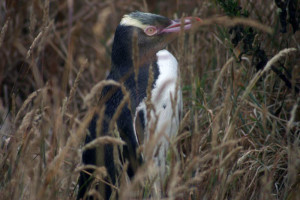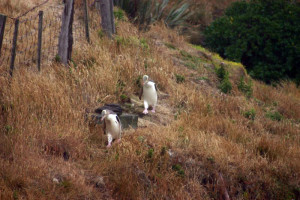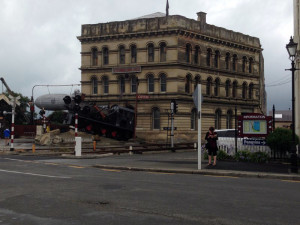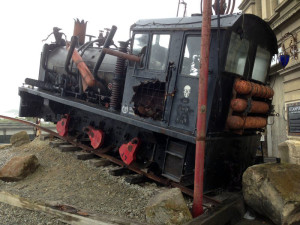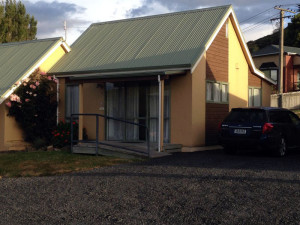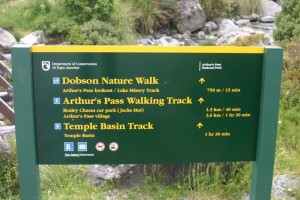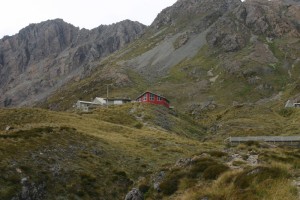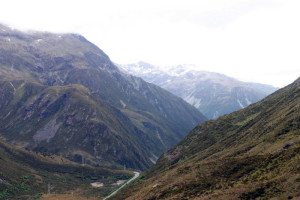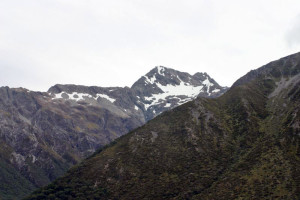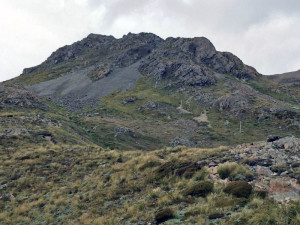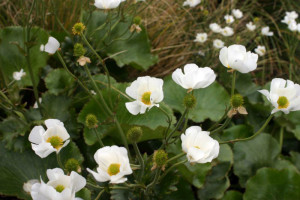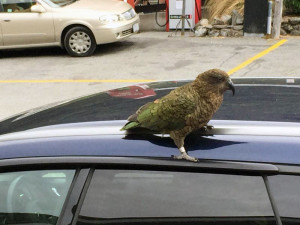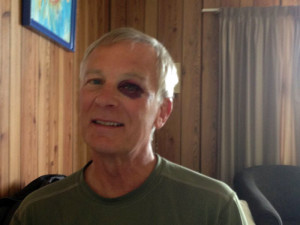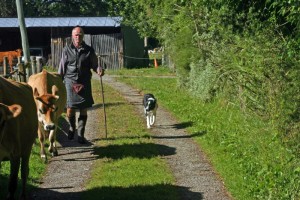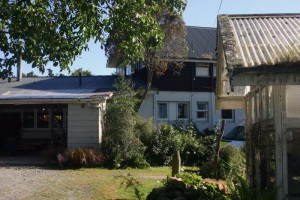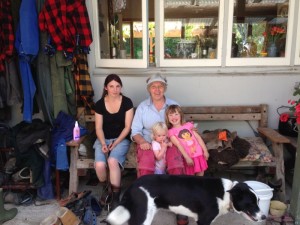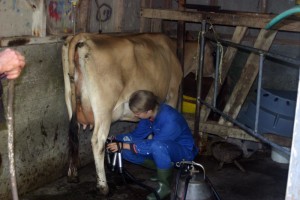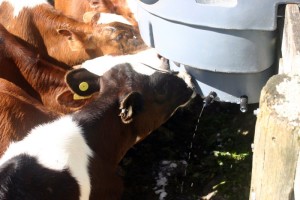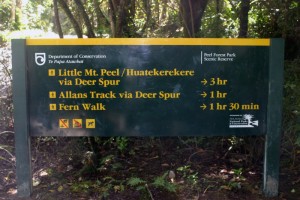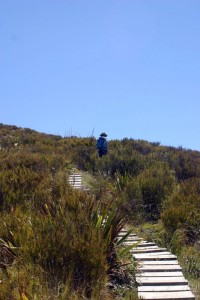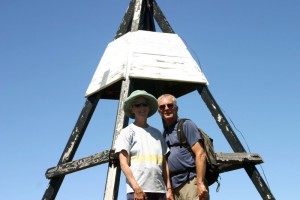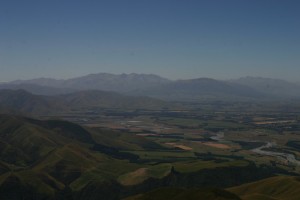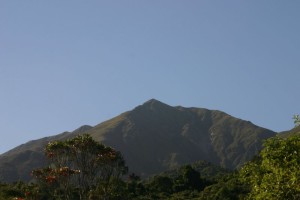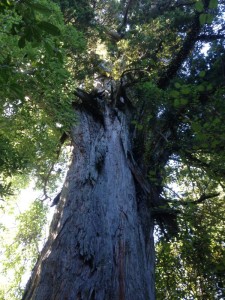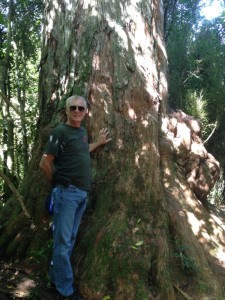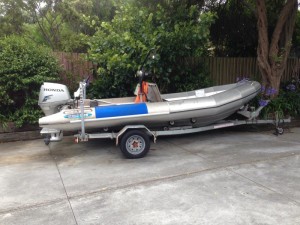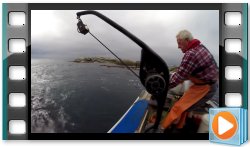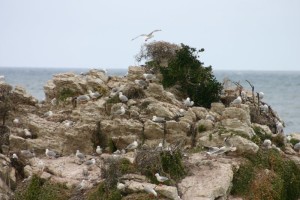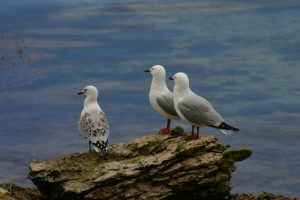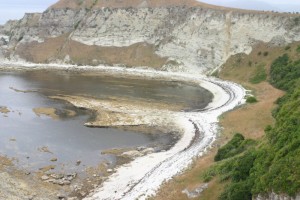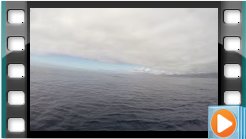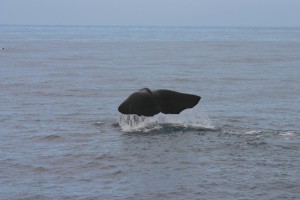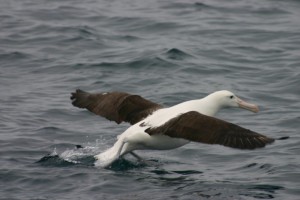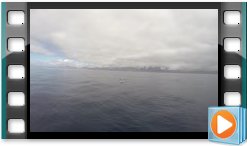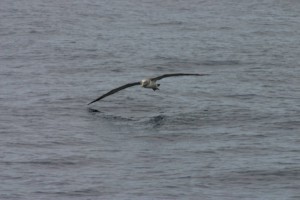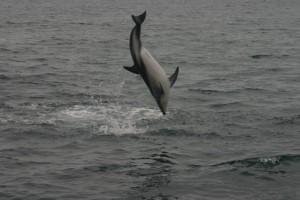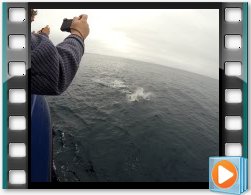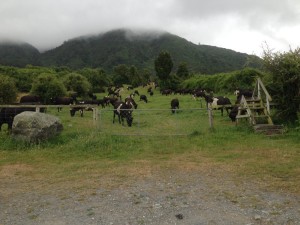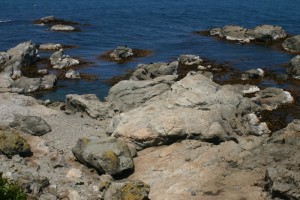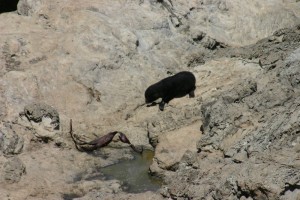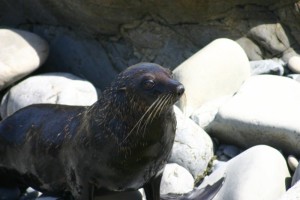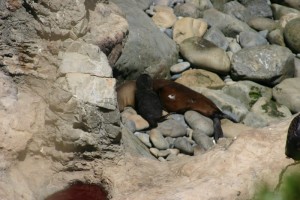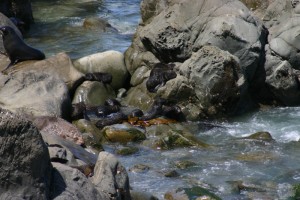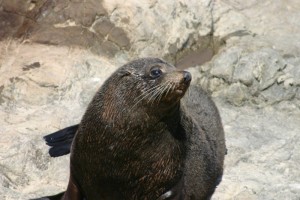Our next stop on the southeast coast was Dunedin. Dunedin is a bit like the Boulder of New Zealand – about 125,000 people, a university town with about 20,000 students. It’s located at the inland end of a beautiful harbor – Otago Harbour. It’s a lovely town, with its Pearl Street equivalent – the Octagon, and lots of Victorian buildings on a gorgeous harbor. They say the railroad station is the most photographed building in New Zealand. We actually stayed about 12 miles from downtown, midway down Otago Peninsula in a teeny village called Portobello. There were two ways out to Portobello, the high road, down an effectively one land road meant for 2 cars, up and down and around these tortuous hills, hairpin turns, and beautiful scenery. Or the low road, meant for 1 1/2 cars, hugging (you hope) the shores of the harbor, with cliffs on one side and salt water on the other. Pick your poison. Getting back and forth to Dunedin was always an adventure.
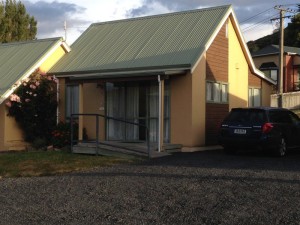
Our little cottage in Portobello.
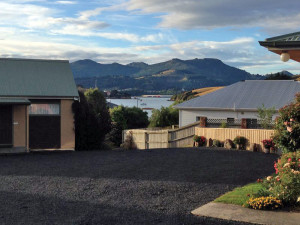
The view of the bay from our cottage.
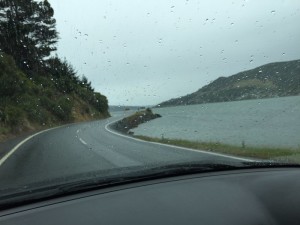
The “low” road. If you miss the turn, you are in the drink. Driving here is really a challenge.
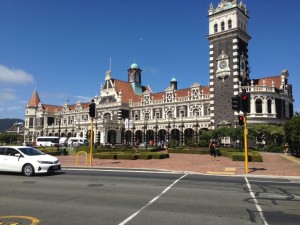
The most photographed building in all of New Zealand, the old train station in Dunedin.
We stayed 5 days and visited their lovely botanic gardens and their local museum. One evening, we hiked about 1 hour through some farmer’s sheep pastures out to Sandfly Bay to go up to the viewing hide to see yellow-eyed penguins. The way out to the beach had some sporadic green poles with orange tops, indicating the route, although it really wasn’t a true trail. While the South Island is renowned for its sandflies (we call them black flies in the U.S. And anyone who’s camped in the Maine in June and July knows the misery these small bugs can cause). However, Sandfly Bay is named for the amount of sand flying through the air due to winds being channeled in just the right way to send sand flying horizontally. Well, we were out there about 7:30 pm and the winds were calm. There were about a dozen people that had hiked in the more traditional, steeper route, waiting at the DOC hide to watch the penguins come out of the water and waddle up to their nests for the night. We saw one come out of the water, and over the course of 45 minutes, we watched in awe as it climbed a very steep hill that must have been a 250 feet high, going all the way to the top to its nest. Honestly, I would be amazed if I could have scrambled on hands and knees up that steep slope. And it does this every night to get to its chicks. Upon leaving, we saw another one waddling up the sand dune to its nest.
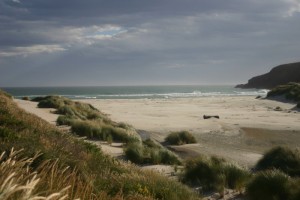
The beach on which the yellow eyed penguins come ashore.
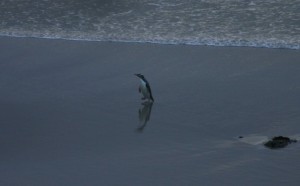
This one we saw come ashore and climb this huge hill to it’s nest. Amazing. Remember this is the rarest penguin in the world.
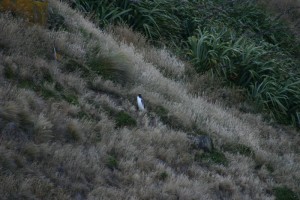
The climb to it’s nest and chicks.
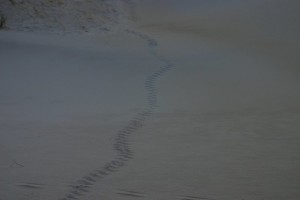
As we were heading back to the car, we passed a second penguin that had crossed the sand and was making its way up to its nest.
After making our way through the long path through the dunes, we came back to the sheep pastures. But this time, we couldn’t see the DOC poles and started heading off in the direction that we thought was correct. After about 15 minutes of walking, it was clear we had no idea which of the many hills we needed to climb to get back to our car. It was about 9 pm, the sun was starting to set and we’re standing around in the middle of sheep pasture. After some terse words back and forth, Spencer figured out where we needed to be, which did involve backtracking, but we made it back to the car before all light was lost and any permanent marital damage done.
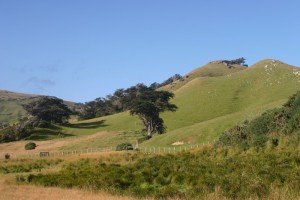 The track on which we got lost. There were several hills that looked like this and sheep everywhere. As it got dark it was really hard to find our way. I guess we’re lucky we’re not still out there wandering around. 🙂
The track on which we got lost. There were several hills that looked like this and sheep everywhere. As it got dark it was really hard to find our way. I guess we’re lucky we’re not still out there wandering around. 🙂
On the end of the peninsula is a Royal Albatross nesting colony, and the land is owned and operated by a trust that likes to charge $50 entry fee to get in and see the albatross colony. As we had seen a number of albatross already, this wasn’t on our list, but we did fork over some money to see the Little Blue Penguins come out of water at their viewing site. This was actually pretty amazing. About 100- 150 of these tiny (about 13 inches tall) penguins come ashore during breeding and chick rearing season at dark – about 10 pm, and come together in what are called rafts – groups of 10 –20 penguins swimming together in a group toward shore. There was a viewing deck with just a few lights that allowed us to see group after group wading ashore and waddling up the scrub to get to their nests. They were harangued by some hungry chicks (some appearing bigger than the adults), charging after any and all adults that might have food to share. It was quite a sight to see, as these penguins were totally adorable.
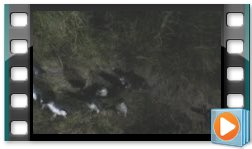
Blue Penguins coming ashore. This is two videos spliced together. The first part are the parents “marching” ashore. The second is of two little chicks “attacking” some unsuspecting parent coming up the hill. I don’t care if you are not one of my parents. If you have fish, I WANT IT! 🙂
Another day we did a beautiful day hike out to a beach that was basically deserted for our first hour there, except for the few fur seals sleeping on the beach. It was a truly spectacular beach. It seems that everywhere we go, there are miles of beautiful, empty beaches. But the water is cold and the weather has usually been in the 60’s, and when it makes it into the 70’s, there is a cold wind blowing off the ocean. So swimming is rarely appealing. But on that day, we did stretch out on the beach and spend some time catching some rays before walking down the beach. After saying goodbye to our motel’s UK hosts, who were really wonderful, we headed of down the Southern Scenic Route to our next stop, Curio Bay.
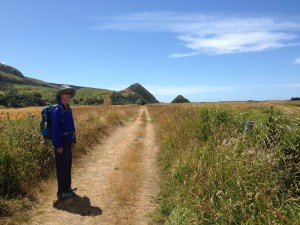
The hike to the private beach.
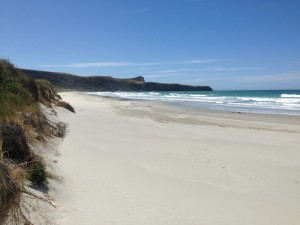
Look at this beach. It looked like this in both directions. Not a soul, but us.
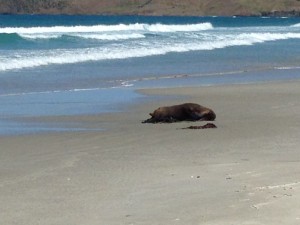
Well, we did have to share this beautiful beach with this big fat fellow and one other. Geez, for crying out loud

